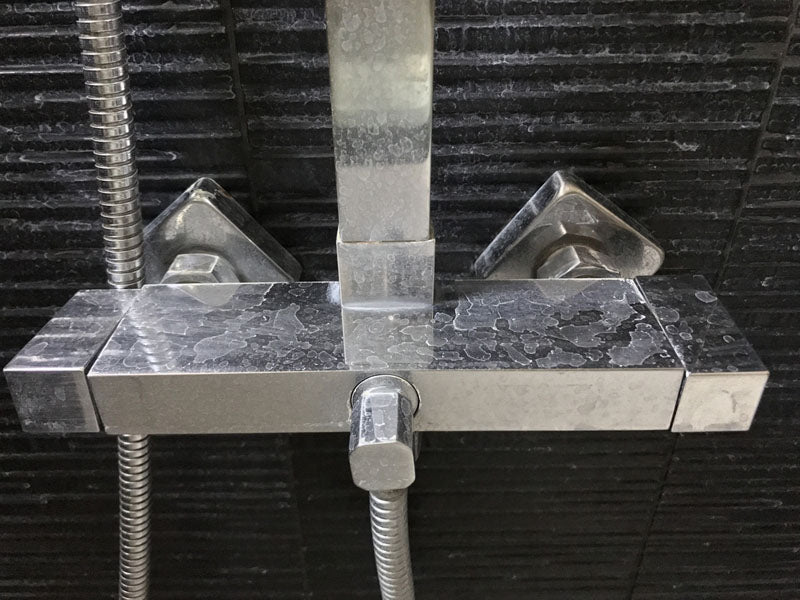
Soap scum is a term that many people dread when it comes to household cleaning. It represents a stubborn layer of film that forms in our showers, tubs, and sinks. But have you ever wondered about the science behind this pesky residue? Let's dive deep into soap scum causes and uncover the mysteries of this bathroom menace.
Learn more: Remove Hard Water Stains from Bathroom Glass in 6 Easy Steps.
Understanding Soap Scum
Soap scum is not merely dirt. It's a complex mixture formed by the interaction of soap, water, minerals, and body oils.
The Chemical Reaction
Soap is primarily made of fatty acids. When these fatty acids interact with magnesium and calcium ions present in tap water. They produce a hard, white substance that adheres to surfaces - this is the primary layer we commonly refer to as soap scum.
The Role of Minerals
Calcium and magnesium are minerals found in hard water. These minerals play a significant role in soap scum formation. When you use bar soap or shower gel in hard water, these minerals bond with the soap's ingredients, leading to the annoying film that clings to our shower doors, walls, and fixtures.

Read more about 2 Smart Ways to Get Rid of Stubborn Soap Scum.
Where Does Soap Scum Typically Accumulate?
You can find this stubborn residue on various surfaces ranging from glass to porcelain and from stainless steel to fiberglass.
Showers and Tubs
Shower doors, tubs, and shower curtains are notorious for soap scum buildup. As we wash, the combination of soap residue, skin cells, and hard water accumulates, creating the perfect environment for soap scum.
Sinks and Fixtures
Sinks, especially in the bathroom, are another common place where soap scum forms. Whether from makeup, hand washing, or toothpaste, the residue left behind can result in that familiar grime and streaks.
Clogged Drains and Pipes
The accumulation of soap scum can lead to clogs in drains and pipes. Combined with dirt, skin, body oils, and hair, it forms thick grime, creating potential plumbing issues.
Providing Breeding Grounds for Mildew and Mold
Where there's soap scum, there's often mildew and mold. The damp environment, coupled with the organic ingredients in the film, makes it a fertile ground for these unwanted guests.
Damage to Surfaces
Persistent soap scum buildup can cause permanent damage to surfaces. Over time, this buildup can lead to stains and discoloration, particularly on porous materials like stone.
How to Combat Soap Scum?
Understanding the science behind soap scum is the first step to effectively addressing the problem.
Choosing the Right Products
Liquid soaps and shower gels, which have fewer fatty acids, can reduce the amount of soap scum formed. Additionally, opting for a water softener can counteract the minerals responsible for the scum.

Natural Cleaners
Vinegar and baking soda can be an excellent solution for cleaning soap scum. Using a spray bottle, you can create a mixture of equal parts of vinegar and water. Spraying this onto the affected area, letting it sit, and then scrubbing with a sponge can help. For tougher scum, a paste of baking soda and water works wonders.
Preventive Measures
Consider using a water softener to reduce the amount of hard minerals in your water. Additionally, after showers, using a squeegee to wipe down surfaces can prevent soap scum buildup. Opt for liquid soaps or shower gels that have fewer fatty acids, as these tend to produce less soap scum compared to traditional bar soaps.
Conclusion
The battle against soap scum may seem never-ending. However, with a good understanding of its causes and armed with the right cleaning techniques and preventive measures, you can keep your bathroom surfaces shining and soap-scum free. Remember, knowledge is the first step to conquering this common bathroom adversary.
